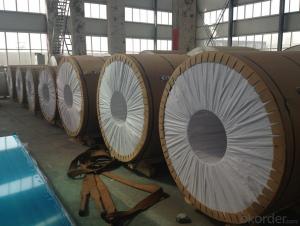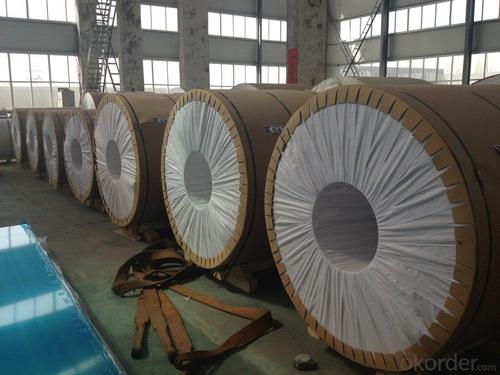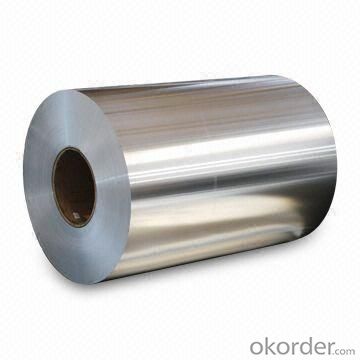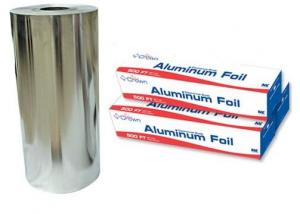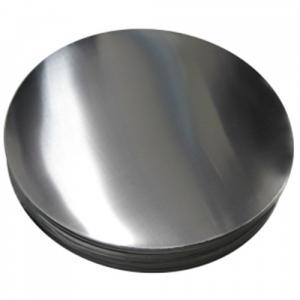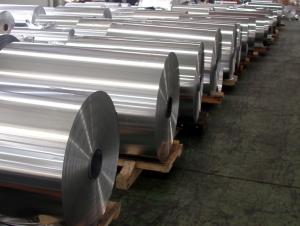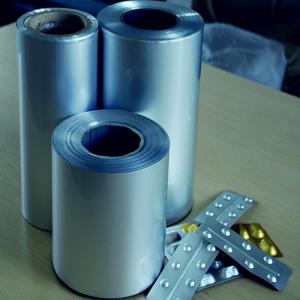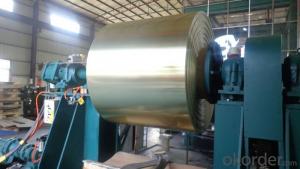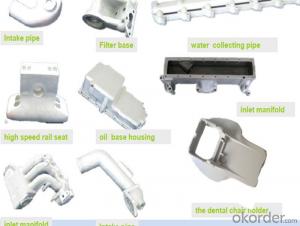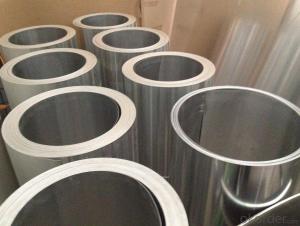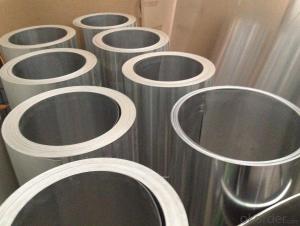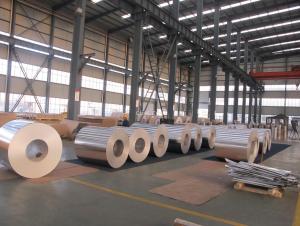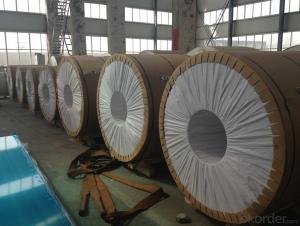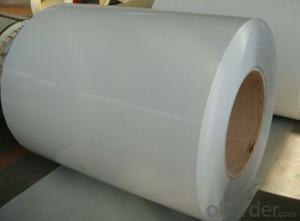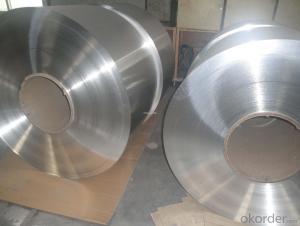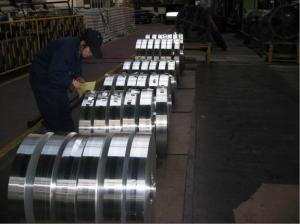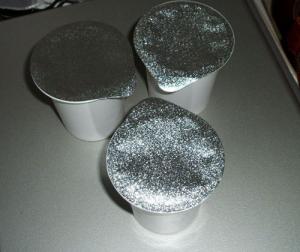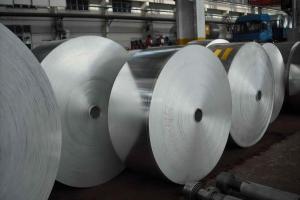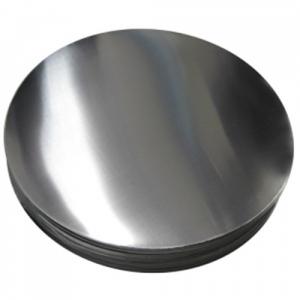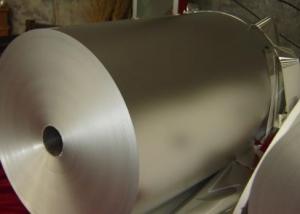Aluminum Prepainted Aluminum Coil for Making Gutter
- Loading Port:
- Shanghai
- Payment Terms:
- TT OR LC
- Min Order Qty:
- 5 m.t.
- Supply Capability:
- 100000 m.t./month
OKorder Service Pledge
OKorder Financial Service
You Might Also Like
Specification
Product Description
Commodity: Aluminum coil jumbo rolls
Alloy: 1050/1060/1100/1200/3003/3004/3005/3105/5005/5052/5754/5083/6061/8011
Temper: O, H12,H14,H16,H18,H22,H24,H32,H112,T6
Gauge: 0.2mm-8mm
CC and DC material with higher tensile strength and bigger elongation
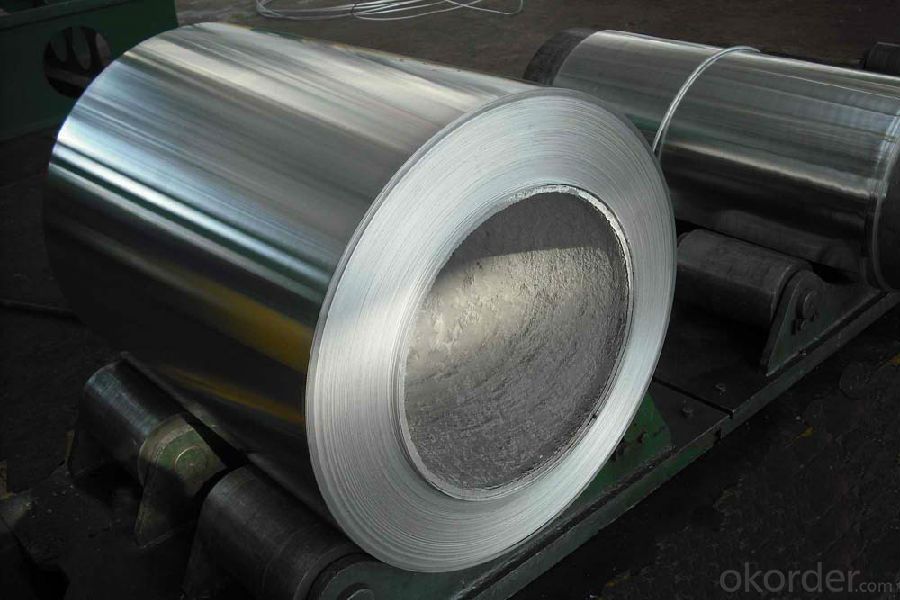
1.Specifications:
1. wood prepainted aluminum coil
for aluminium shutter
2. Aluminum Alloy: 3003H24, 3005H24, 3105H24 or 1 series, 5 series,
3. Thickness: any thickness range from 0.2mm to 1.5mm are available;
4. Width: any width range from 55mm to 1600mm are available;
5. Paint: PET, PVDF, Epoxy Resin;
6. Color: any color is available, as per your sample or our sample;
7. Coating hardness & adhesive: pensive hardness more than 2H; 1st grade adhesive;
8. Impact resistance: no cracking and peeling (50kg/cm, ASTMD-2794:1993)
9. Flexibility & MEK resistance: “T-bend”, 2T; MEK resistance more than 100;
Warranty: PET coating allows 5-10 years
10.Package: carton package and wooden pallet; 1Ton, 1.5Ton or 2 Tons as per your request;
11.Certificate: Certificate of origin;
Lidao Aluminum coil is mainly be used for roof, ceiling, curtain wall, al-plastic panel, aluminum veneers, perforated panel, aluminum tile, window, door, metal furniture, can or box for food,
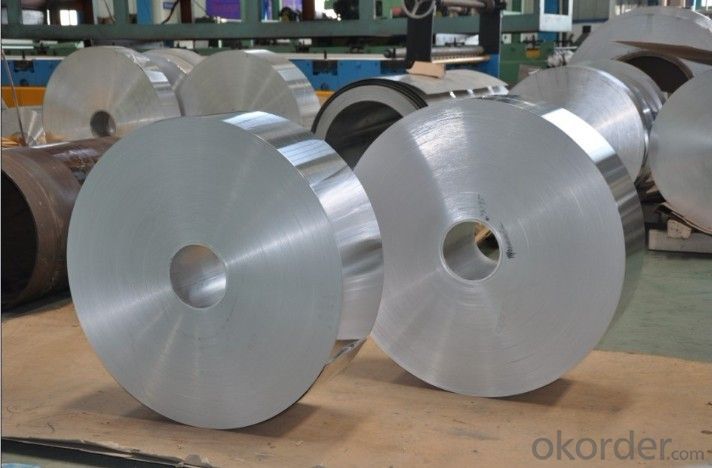
During the past years we have to import extra-wide coated aluminum coil for China market .In the year 2011 ,CNBM invest millions of usd introduce and establish a large new coating line with line speed 30 meters/secod ,which enable us to pre-paint aluminum coil with max width 2400mm.
CNBM 's team with 15 years experience ,is dedicated to each steps including quality inspection to materials ,pretrement ,coating
,baking,rooling,inspection and packing ,and make sure the coating layer is smoothl,durable,shiny and keep uniform color on different coils.
We learned sincerely from some of most famous container or truck manufacture in the world about their requirements on aluminum materials ,coating layer,color,size tolerance etc,and focus on all details about package storage and transport .
CNBM offer an new option for you.
Our main products for aluminum coils are as follows:
Commodity | Alloy | Temper | Thickness /mm | Width /mm | |
Base material | 1235 1200 1140 8*** | H14 H18 | 0.25-1.00 | 950-1340 | |
Coil for PS | 1050 1060 | H18 | ≥0.2 | 830/920 1030/1050 | |
Sheets for PS | 1050 1060 1070 | H18 | 0.13-0.3 | 650-1300 | |
Strip for venetian blinds | 5052 | H19 | 0.13-0.3 | 300-1300 | |
Coils for composite panels | 1100 3003 3005 | H18/HX2 HX4/HX6 HX8 | 0.03-1.0 | 1000-1300 | |
Coils for other uses | 1100 1235 3004 5052 8011 | H14 H18 H24 O | 0.3-0.4 | 1000-1600 | |
Sheets/Strips for other uses | 5052 | O/H32/H34 | 0.07-2.0 | 950-1550 | |
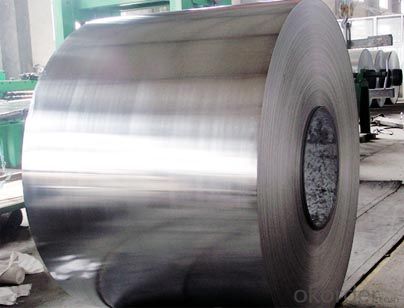
Our Services
CNBM is ready to assist with any product needs or enquiries. We value our customers and welcome your thoughts and feedback.
Please send comments, questions and requests through alibaba or our personal contact so they can be directed to the appropriate department.
About samples: Based on our company rules, a few samples are willing to be offered, but clients are requested to pay freight.
Working time:9:00~17:30(GM+8) from Monday to Friday, but you also can contact with us via personal contact information during our leisure time. We will try our best to offer you service in 24*7 hours.
Any quality, quantity problems are occured, response you will get in time not over more 24 hours after we recieve your complains. Problems will be solved in one week throught friendly negotiation.
FAQ
Q: Can you provide free samples?
A: Yes, free samples will be sent to you on freight at destination.
Q: Can I get your latest catalogue?
A: Yes, it will be sent to you in no time.
Q: What is the MOQ?
A: 5 tons
Q: What are your payment terms?
A: We accept L/C, D/A, D/P, T/T, West Union,etc.
If you are interested in our products, please do not hesitate to contact with us via following information
- Q: What are the distinctions between aluminum foil and aluminum sheet in terms of thickness, usage, and properties?
- <p>Aluminum foil and aluminum sheet are both made from aluminum but differ in thickness and usage. Aluminum foil is very thin, typically ranging from 0.0005 to 0.1 inches, and is used for food packaging, cooking, and insulation. It is lightweight, flexible, and has excellent barrier properties against light, air, and moisture. Aluminum sheet, on the other hand, is thicker, usually from 0.2 to 2 inches, and is used in construction, automotive, and aerospace industries due to its strength and durability. It is less flexible than foil but offers greater rigidity and can withstand higher temperatures and pressures.</p>
- Q: Explain the relationship between aluminum and iron in terms of their properties and uses.
- <p>Aluminum and iron are both metals with distinct properties that determine their various applications. Aluminum is lighter, more resistant to corrosion, and has good thermal conductivity, making it suitable for applications such as beverage cans, aircraft construction, and electrical wiring. Iron, on the other hand, is heavier, stronger, and more magnetic, which makes it ideal for construction materials, steelmaking, and electromagnets. They can be combined to form alloys, such as steel, which is an iron alloy with carbon and sometimes other elements, enhancing its strength and durability.</p>
- Q: Explain how the production process of recycled aluminum differs from that of new aluminum, focusing on energy consumption and environmental impact.
- <p>The production process for recycled aluminum is significantly less energy-intensive compared to the production of new aluminum. Producing new aluminum from bauxite ore requires high temperatures and substantial energy, often from fossil fuels, to smelt the ore and extract the metal. This process emits greenhouse gases and consumes large amounts of electricity. In contrast, recycling aluminum involves melting down existing aluminum products, which requires only about 5% of the energy needed to produce new aluminum. This process is more environmentally friendly, as it reduces energy consumption, lowers greenhouse gas emissions, and conserves natural resources by decreasing the need for raw materials.</p>
- Q: This question asks for methods to protect aluminum from corrosion.
- <p>Aluminum corrosion can be prevented through several methods. One common approach is anodizing, which involves applying a protective oxide layer to the aluminum surface. This process enhances the metal's resistance to corrosion. Another method is using protective coatings such as paints or enamels that act as a barrier against corrosive elements. Cathodic protection, where aluminum is connected to a more easily corroded metal, can also be used. Additionally, ensuring proper design and avoiding contact with aggressive chemicals can minimize corrosion. Regular maintenance and inspection can help detect and address corrosion issues early.</p>
- Q: What is the oxide layer that forms on aluminum and what are its properties?
- <p>The oxide layer on aluminum is a thin, transparent, and hard layer of aluminum oxide (Al2O3) that forms naturally when aluminum is exposed to air. This layer is highly resistant to corrosion and protects the underlying aluminum from further oxidation. It is chemically inert, which means it does not react easily with other substances, and it has a high melting point, making it stable at high temperatures. The oxide layer also has a high hardness, which helps to prevent scratching and wear. This protective oxide layer is self-healing, meaning that if it is damaged, it can regenerate and continue to protect the aluminum.</p>
- Q: Is it safe and practical to use old aluminum cookware that has been stored for a long time?
- <p>Yes, you can reuse old aluminum cookware, but it's important to check its condition first. Look for any signs of damage, such as pits, scratches, or warping, as these can affect the cookware's performance and potentially release aluminum into your food. If the cookware is in good condition, clean it thoroughly and season it if necessary. Remember, aluminum cookware is not suitable for acidic foods or high heat, so use it accordingly to prolong its lifespan and maintain food safety.</p>
- Q: What are the typical applications for aluminum sheet metal?
- <p>Aluminum sheets are versatile and have numerous applications due to their lightweight, corrosion resistance, and strength. Some common uses include construction for roofing and siding, automotive parts such as body panels and heat sinks, packaging for food and beverages, aerospace for aircraft components, and in the manufacturing of electronic devices due to its good thermal conductivity. They are also used in signage, furniture, and various decorative applications.</p>
- Q: Describe the reaction of aluminum with acids and bases.
- <p>Aluminum reacts differently with acids and bases. With acids, aluminum undergoes a redox reaction where it loses electrons and forms Al^3+ ions. This reaction is exothermic and releases hydrogen gas. The general reaction with a non-oxidizing acid like hydrochloric acid is: 2Al + 6HCl 鈫?2AlCl鈧?+ 3H鈧? In the presence of a strong base, aluminum reacts with water to form aluminate ions and hydrogen gas, a process known as an alkaline hydrolysis. The reaction can be represented as: 2Al + 2OH鈦?+ 6H鈧侽 鈫?2Al(OH)鈧勨伝 + 3H鈧?</p>
- Q: Is aluminum a component in the manufacturing processes of glass and ceramics?
- <p>Aluminum can be used in the production of glass and ceramics, although it is not a primary component. In glassmaking, aluminum is sometimes added to reduce the coefficient of expansion, making the glass more resistant to thermal shock. It can also improve the chemical durability and electrical insulation properties of the glass. In ceramics, aluminum compounds are used as opacifiers, colorants, or to enhance the mechanical properties of the final product. However, the use of aluminum in these industries is typically in small quantities and serves specific purposes rather than being a fundamental part of the material composition.</p>
- Q: Is there an alternative method for recycling aluminum besides the conventional process?
- <p>Yes, aluminum can be recycled using different processes. While the conventional process involves melting and recasting, alternative methods include mechanical recycling, which involves shredding and reusing aluminum without melting, and chemical recycling, which breaks down aluminum into its base elements and reassembles them into new products. These methods can be more energy-efficient and environmentally friendly, depending on the specific circumstances and technologies used.</p>
Send your message to us
Aluminum Prepainted Aluminum Coil for Making Gutter
- Loading Port:
- Shanghai
- Payment Terms:
- TT OR LC
- Min Order Qty:
- 5 m.t.
- Supply Capability:
- 100000 m.t./month
OKorder Service Pledge
OKorder Financial Service
Similar products
Hot products
Hot Searches
Related keywords
